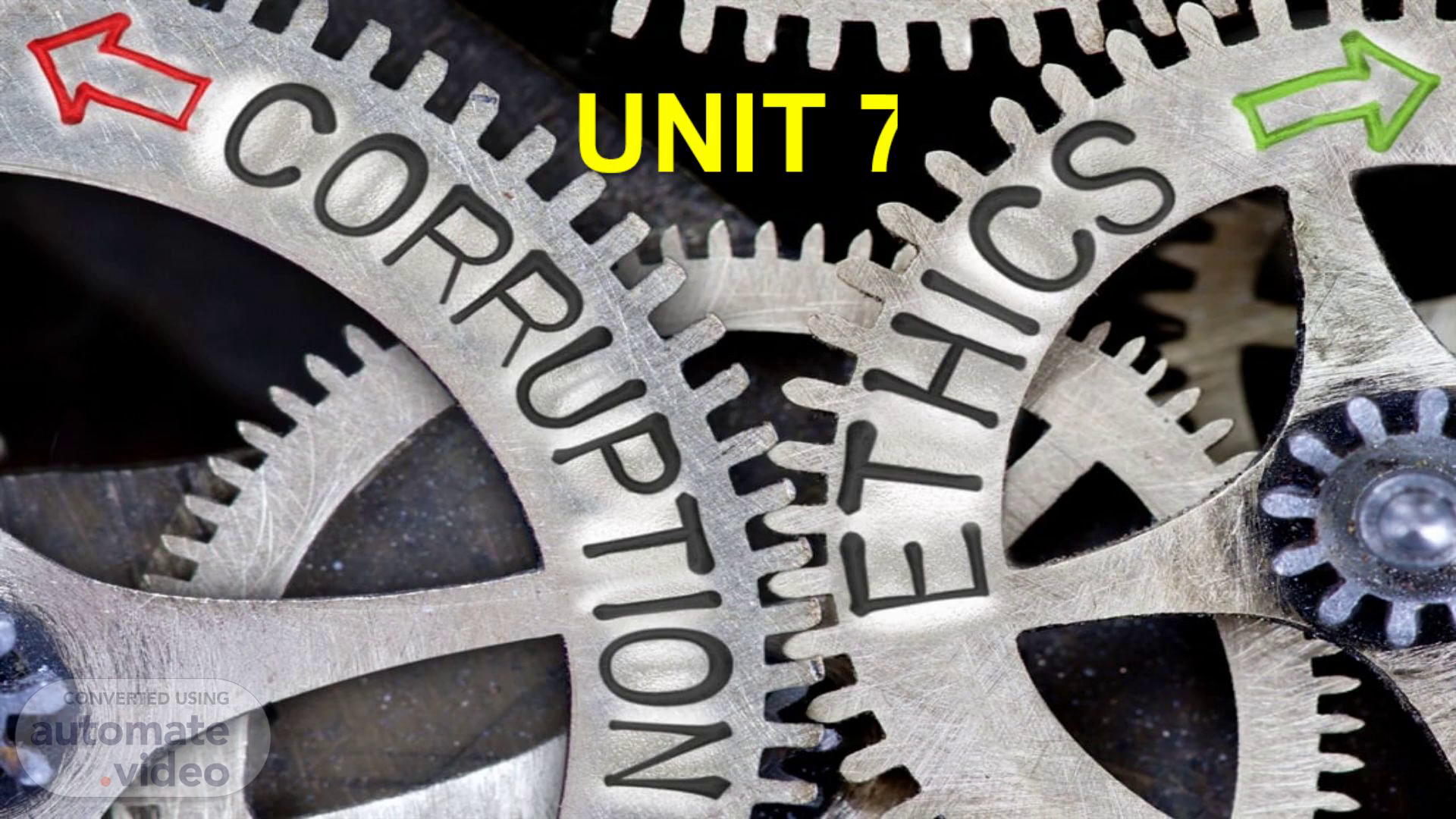Scene 1 (0s)
undefined. UNIT 7. IN THE PHILIPPINE ORGANIZATION.
Scene 2 (9s)
[Audio] ETHICS Involves principles of right and wrong behavior. CORRUPTION Is the dishonest or unethical use of power or position for personal gain or to benefit others. It entails abusing of power, influence, or resources for private gain at the expense of the public good or other's rights. Government, business, public organization, and personal relationships can be corrupted..
Scene 3 (26s)
[Audio] Ethics and Corruption are often seen as opposing forces. Upholding ethical standards helps prevent corruption, as it promotes transparency, accountability, and fairness in decision making. Conversely, corruption undermines ethical principles by prioritizing self-interest over the common good..
Scene 4 (31s)
[Audio] ORGANIZATION CORRUPTION Involves unethical or corrupt practices. It occurs when employees or organizations within the business commit dishonest or illegal acts to profit themselves or the organization at the expense of stakeholders, the public or society. It can cost the organization and its stakeholders money, reputation, trust, penalties, and public confidence. It harms the company's ethics, internal operations and growth..
Scene 5 (36s)
[Audio] SOCIO-CULTURAL ASPECTS OF ORGANIZATIONAL CORRUPTION Norms and Values Social Expectations Power Distance Patronage and Nepotism Perceived Risk and Punishment Informal Networks and Social Capital Tradition and History Media and Public Perception Educational and Ethical Standards.
Scene 6 (41s)
[Audio] ADMINISTRATIVE ASPECT OF CORRUPTION Bribery and Kickbacks Misuse of Resources Favoritism and Nepotism Procurement Fraud Abuse of Discretionary Powers Extortion and Coercion Influence Peddling Clientelism Lack of Transparency and Accountability Collision and Cartelization.
Scene 7 (43s)
undefined. Bible verse. Proverbs 11:3 “The integrity of the upright guides them, but the unfaithful are destroyed by their duplicity.” This verse emphasizes the importance of integrity in guiding one’s actions and contrasts it with the destructive consequences of deceit and corruption..
